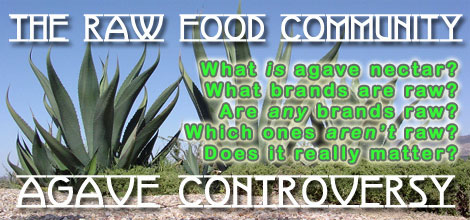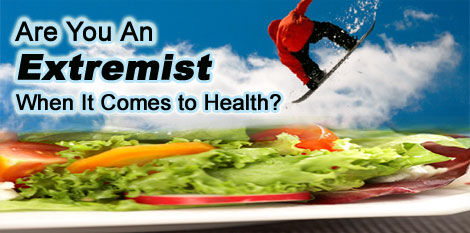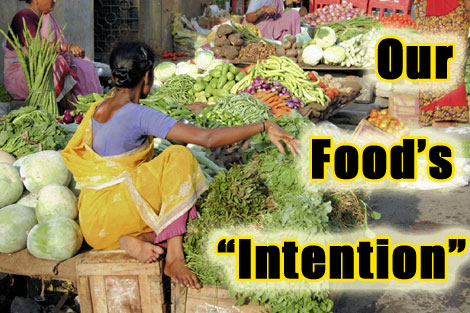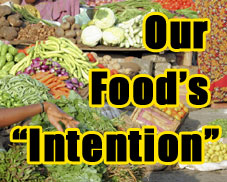Before we moved to Portland, Oregon, land of all things fresh and organic within walking distance, we had to drive quite a distance to reach the food co-op (the only place that had a good selection of organic produce and other raw food necessities). So, we only went shopping about once a week. It took a lot of trial and error to find ways to keep our weekly produce fresh for about a week.
We learned which fruits and vegetables stay fresh the longest, and which go bad the fastest. Based on this, we stocked the refrigerator accordingly (and used up the produce accordingly, as well). The fruits and veggies that stayed fresh the longest were stored in the backs of the shelves (things like carrots, beets, broccoli, cauliflower, apples, etc.). Next we stored the greens that lasted a pretty good amount of time (like kale and collards). And in the front of the shelves and in the door, we stored the more delicate greens (like lettuces and herbs).
This past weekend we had the pleasure of Rhio and her partner, Leigh, visiting with us. Rhio was in town for a presentation on Genetically Engineered foods (more about that here) and she took the opportunity to spend some time with us. It was a lovely weekend and we talked about all kinds of things (yes, even non-raw food things!), laughed a lot, enjoyed delicious raw foods, and got to know each other better.
While they were here, Rhio and Leigh agreed to allow us to interview each of them for this blog. Since we needed to keep the interview under ten minutes (the maximum time allowed on most video sites), we decided to ask questions about topics we had already touched on with Rhio and Leigh during their stay--things we thought might be interesting for all of you to hear about.

We just returned from the East End Food Co-op, where we answered raw food questions for two hours. We were still answering questions on our way out the door, and would have stayed longer but the place was closing. ;-) So, if anyone from this evening stops by our site and you still have questions, just comment here (or send me an email) and I'll be happy to answer them.
I'm more of a one-on-one kind of person, so I was a bit nervous about sitting in front of everyone to answer questions. Jim and KDcat were there to help me, of course, otherwise I probably wouldn't have been there at all. Once people started arriving, I was comfortable. The first people who entered the room were super sweet and I could tell they were genuinely nice people. Then little by little the room filled up, and I was surprisingly comfortable.Maybe in addition to all of the other positive changes in my life, my self confidence is getting better, too!
Did you know that approximately 70% of your muscle, 80% of your blood is water, and 85% of your brain is made up of water? When we are born, we are nearly 90% water by weight, and as we age we lose more and more water (think of a grape slowly shriveling up into a dried raisin).
If you consume 100% fresh raw foods (with none that have been dried or dehydrated in any way), your body is receiving the cleanest, most pure water possible and you probably don't experience a lot of thirst. The less fresh foods an individual consumes, the more their needs for water increases.

Is low fat more expensive? When I was eating a lot of nuts and seeds, in the back of my mind I kept saying, "Someday you'll eat less of these nuts and seeds, and you'll save a lot of money." I really believed that to be true because organic, raw nuts and seeds are outrageously expensive.
For one hundred days, I'm transitioning to a lower fat raw diet. I'm down to fats only in the evening, and for the next ten days those fats will only come from avocados, young coconuts, and possibly some hemp seeds. If I'm not hungry for the fat, however, I'll go without it. That hasn't been the case yet, though. By dinner time I'm ravenous and wanting to eat heavy, dense foods to calm the hungry beast in my belly. Even though I've been including some fats in the evening, I'm eating significantly less than I normally would if not doing this challenge. So, I've been eating more fruits and vegetables to get the calories I normally received from nuts and seeds.

Today, for Makin' It Monday, Jim has taken you through the steps of making a vegetable wrap. He came home for lunch, pulled the veggies out of the fridge, and the filming began. He quickly shows how just about anyone can prepare fresh, raw, delicious food in less than fifteen minutes. His goal was to get it done in under ten minutes, but it actually took about fourteen. Still, fourteen minutes to prepare amazingly tasty, delicious, and nutritious food is AWESOME!

In this special five-part series, Joanna Steven uncovers where some top vegetarian athletes get their protein. Here's part one, focusing on Tim VanOrden's take on this issue.
When alternatives to the Standard American Diet are discussed, protein is on everyone's mind. There are many reasons why someone might want to eat a plant based diet, whether for allergy concerns, health reasons, or more variety. But nagging doubts often come up;? Are plant proteins adequate for athletes and body builders ? Are they really the preferred protein source of the human body ? Are they better than animal based protein or are they just consumed for environmental reasons ? To answer these questions, why not ask the experts:? triathletes, professional dancers, bodybuilders and extreme sport racers ? Here are the answers from some of the most competitive athletes in their respective fields.
Read more: Vegetarian Athletes Share: Top 5 Sources for Animal-free Protein (Part 1 of 5)

Within the raw food community, a controversy seems to have been brewing for the better part of a year! The topic: Agave nectar (also called agave syrup). Surely by now most people know what agave nectar is. For anyone who doesn't, it's a thick liquid sweetener made from, you guessed it, the agave plant.
In general, the production of tasty agave nectar involves heating the plant to a certain temperature (which varies widely according to which manufacturer is making it and which species of agave is used). The extent of this heating constitutes a significant part of the controversy (as most raw foodists believe that heating any food over a certain temperature, usually somewhere between 105 and 118 degrees fahrenheit, renders it "dead").
Read more: Pure Jeevan Explores the Raw Food Community's Agave Nectar Controversy

Wendi tells a funny story sometimes about a woman she'd met who was considering undergoing gastric bypass surgery to help her lose weight. When Wendi asked the woman whether she'd consider changing her diet to a raw foods regimen, she responded with something like, "Oh, no, that's too radical."
This is really what it's come to in society; having part of your digestive system surgically altered (in a profound, irreversible, dangerous, and invasive way) is no more than some nonchalant, consequence-free elective decision ... while eating more salads is viewed as "radical."

Jim here... During one of our marathon sessions at a Border's book store, I recall reading somewhere about the notion of a fruit's "intention" to be eaten. It's been a few years since I've read that, but I immediately resonated with the notion that many fruits, nuts, vegetables, and seeds are actually evolved to be eaten by other living beings and, therefore, to consume them (or their fruits and seeds) is to participate in a wonderfully nonviolent act that is in perfect harmony with a kind of primordial Earthen symbiosis. Whether these plants, vines, trees, etc. feel a conscious intention to have their fruit eaten by others is a matter of metaphysical conjecture. But, within the context of discussing vegetarianism, the argument is certainly relevant and fairly strong.
 If you walk up to a farm animal, it may be impossible to estimate what's going through its mind, but I feel intuitively that it isn't, "Please kill me and eat my flesh." In other words, there's no "intention" present in that scenario. On the other hand, it's very easy to imagine that a tree produces fruit, knowingly or not, in order to produce offspring. Throughout the entire evolution of that tree, part of that reproductive process has involved animals (including humans) eating the fruit and then "redistributing" (which is a nice way of putting it, I suppose) the seeds naturally.
If you walk up to a farm animal, it may be impossible to estimate what's going through its mind, but I feel intuitively that it isn't, "Please kill me and eat my flesh." In other words, there's no "intention" present in that scenario. On the other hand, it's very easy to imagine that a tree produces fruit, knowingly or not, in order to produce offspring. Throughout the entire evolution of that tree, part of that reproductive process has involved animals (including humans) eating the fruit and then "redistributing" (which is a nice way of putting it, I suppose) the seeds naturally.
In a recent post we announced that we were interviewed by Rhio for her Hooked on Raw with Rhio radio show that airs on NY Talk Radio (formerly known as Tribeca Radio). Rhio is an amazingly talented woman; we encourage you to check out her Rhio's Raw Energy site that has a lot of helpful information about the raw and living foods lifestyle.
Rhio talked with us about all of the projects we've been working on. She was particularly fond of the All Raw Directory, but she was also thrilled about our cross-country raw food tour and the raw food publishing company that we'll be starting in the near future. She asked us about our successes with the raw food diet, about our daughter, and so much more. If you have the time, we'd love for you to listen to the interview and let us know what you think! It was our first professional interview and we enjoyed it!
Here's a link to check out interviews that Rhio has conducted: Hooked on Raw with Rhio/NY Talk Radio.
Read more: Podcast Available: Rhio's Interview of Wendi and Jim Dee


